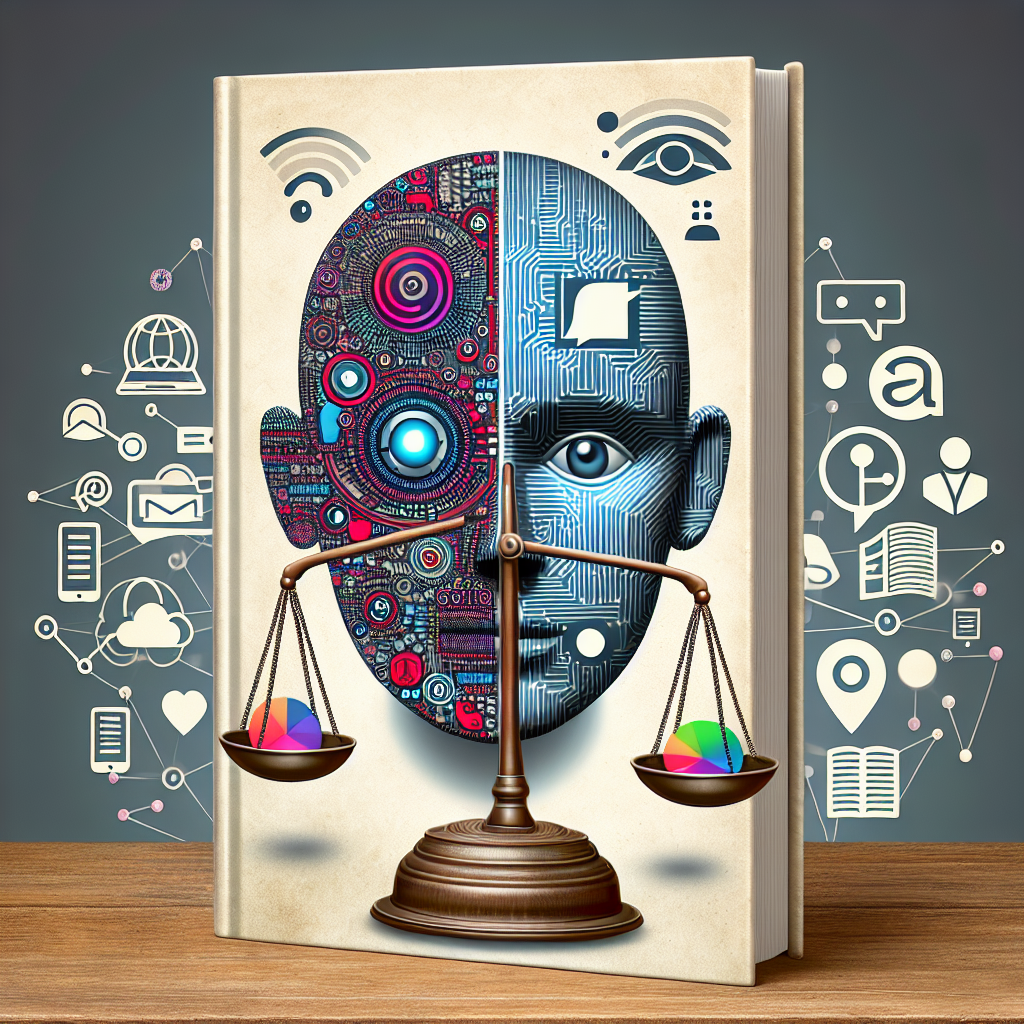Artificial intelligence (AI) has become an integral part of social media platforms, shaping the way we interact, consume content, and make decisions online. While AI has the potential to enhance user experiences and streamline processes, it also raises important ethical considerations that must be addressed to ensure that its use is responsible and respectful of user privacy and rights.
Ethical considerations of AI in social media can be broadly categorized into three main areas: privacy and data protection, algorithmic bias and discrimination, and transparency and accountability.
Privacy and Data Protection
One of the most pressing ethical concerns surrounding AI in social media is the protection of user privacy and data. Social media platforms collect vast amounts of data from users, including personal information, browsing history, and interactions with other users. This data is often used to train AI algorithms to personalize content, recommend products, and target advertisements.
However, the use of this data raises concerns about users’ rights to privacy and consent. Users may not be aware of the extent to which their data is being collected and used, or they may not have given informed consent for its use. This raises questions about the transparency of data practices on social media platforms and the need for clear policies and controls to protect user privacy.
In addition, the use of AI in social media can also lead to data breaches and security vulnerabilities. AI algorithms are only as good as the data they are trained on, and if this data is compromised, it can lead to serious consequences for users, such as identity theft, fraud, and harassment.
Algorithmic Bias and Discrimination
Another ethical consideration of AI in social media is the potential for algorithmic bias and discrimination. AI algorithms are designed to make decisions based on patterns in data, but these patterns can reflect and perpetuate existing biases and inequalities in society.
For example, AI algorithms used to recommend content or target advertisements may inadvertently discriminate against certain groups based on race, gender, or other characteristics. This can lead to exclusion, stereotyping, and harm to marginalized communities.
To address this issue, social media platforms must ensure that their AI systems are trained on diverse and representative data sets, and that they are regularly audited for bias and discrimination. They must also provide mechanisms for users to report and appeal decisions made by AI algorithms to ensure accountability and transparency.
Transparency and Accountability
Finally, ethical considerations of AI in social media also include the need for transparency and accountability in the design, deployment, and use of AI systems. Users should have a clear understanding of how AI algorithms work, what data is being collected and used, and how decisions are being made.
Social media platforms should also be transparent about their AI practices, including how algorithms are trained, tested, and updated, as well as how they are used to influence user experiences. Platforms should also provide mechanisms for users to access and control their data, and to appeal decisions made by AI algorithms.
In addition, social media platforms should be accountable for the consequences of their AI systems, including any harm or discrimination caused by algorithmic bias. They should have clear policies and procedures in place to address complaints and concerns from users, and to take corrective action when necessary.
FAQs
Q: How do social media platforms use AI?
A: Social media platforms use AI for a variety of purposes, including content recommendation, targeted advertising, sentiment analysis, and content moderation. AI algorithms analyze user data to personalize content, identify trends, and automate tasks.
Q: What are some examples of AI bias in social media?
A: Examples of AI bias in social media include discriminatory targeting of advertisements based on race or gender, censorship of marginalized voices, and amplification of harmful content. These biases can lead to exclusion, stereotyping, and harm to vulnerable communities.
Q: How can users protect their privacy on social media?
A: Users can protect their privacy on social media by reviewing and adjusting their privacy settings, limiting the amount of personal information they share, and being cautious about the data they provide to platforms. Users can also use tools like ad blockers and privacy-focused browsers to limit tracking and data collection.
Q: What can social media platforms do to address ethical considerations of AI?
A: Social media platforms can address ethical considerations of AI by implementing clear data policies and controls, training AI algorithms on diverse and representative data sets, auditing algorithms for bias and discrimination, and providing transparency and accountability in their AI practices. Platforms can also engage with stakeholders, including users, regulators, and advocacy groups, to ensure responsible and ethical use of AI.
In conclusion, the ethical considerations of AI in social media are complex and multifaceted, requiring careful attention and action from all stakeholders. By addressing issues of privacy and data protection, algorithmic bias and discrimination, and transparency and accountability, social media platforms can ensure that their use of AI is responsible, respectful, and ethical. Users also have a role to play in advocating for their rights and holding platforms accountable for their AI practices. Only through collaboration and dialogue can we create a social media ecosystem that is fair, inclusive, and ethical for all.

